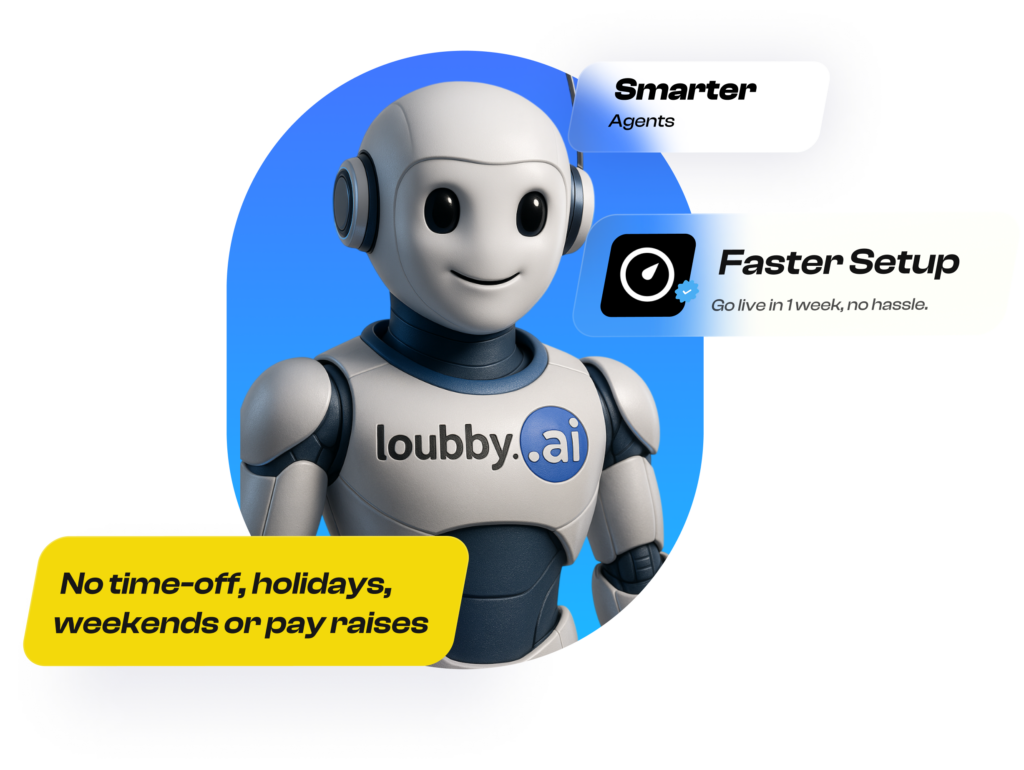The world of work is constantly evolving, and Human Resources (HR) is at the forefront of this change.
One of the most exciting advancements transforming HR is Artificial Intelligence (AI).
AI offers a powerful toolkit to streamline recruitment, find top talent, and build a stronger workforce.
According to MHS, 61% of HR professionals state that the biggest barriers to talent acquisition success are not being able to find the talent that meets the job requirements, while 46% of HR professionals state not having the right skills in the applicant pool.
In the next three years, AI will have the largest influence in automating talent acquisition processes, targeting candidate searches, prioritizing resumes and applications, and engaging candidates.
How can AI be used in Recruiting?
Gone are the days of manually sifting through endless resumes.
AI-powered recruitment tools can scan vast databases and online platforms to identify candidates with the specific skills and experience you need.
This allows you to not only find qualified applicants but also discover passive candidates – highly skilled professionals who may not be actively searching for new opportunities.
Resume Screening
AI can be used to analyze resumes and job applications, identifying the most qualified candidates based on predetermined criteria.
Natural Language Processing (NLP) algorithms can parse through resumes to extract relevant information such as skills, experience, and education, enabling recruiters to focus their attention on the most promising candidates.
Candidate Matching
AI algorithms can match candidates with job openings based on their skills, experience, and preferences.
By analyzing data from resumes, job descriptions, and previous hiring decisions, AI can recommend the most suitable candidates for specific roles, saving recruiters time and effort in the candidate sourcing process.
Chatbots for Initial Screening
Chatbots powered by AI can engage with candidates on company websites or social media platforms, answering frequently asked questions, pre-screening candidates, and collecting basic information.
This not only provides a more seamless experience for candidates but also helps recruiters identify potential candidates more efficiently.
Predictive Analytics for Hiring
AI can leverage predictive analytics to forecast which candidates are most likely to succeed in a particular role based on historical data and performance indicators.
By analyzing factors such as past job performance, retention rates, and cultural fit, AI can help recruiters make more informed hiring decisions and reduce the risk of turnover.
Bias Reduction
One of the significant challenges in recruiting is unconscious bias.
AI algorithms can help mitigate bias by focusing solely on objective criteria such as skills and experience, rather than factors such as gender, ethnicity, or age.
By removing bias from the recruiting process, organisations can build more diverse and inclusive teams.
Automated Scheduling
AI-powered tools can automate the scheduling of interviews, coordinating availability between candidates and interviewers and sending reminders to ensure that interviews are conducted efficiently and on time.
This frees up recruiters to focus on more strategic aspects of the hiring process.
Onboarding Assistance
AI can assist in the onboarding process by providing new hires with relevant information, training materials, and resources tailored to their role and responsibilities.
Chatbots can also be used to answer questions and provide support to new employees during their transition into the organisation.
Feedback Analysis
AI can analyse feedback from candidates and employees to identify trends, patterns, and areas for improvement in the recruiting process.
By collecting and analysing data on candidate experiences, organisations can continuously refine their recruiting strategies to attract top talent.
The Future of HR is Human-Machine Collaboration
While AI offers significant advantages, it’s important to remember that it is a tool, not a replacement for human expertise.
HR professionals should leverage AI to streamline tasks and gain deeper insights, but the final hiring decisions should always involve human judgment and a focus on cultural fit.
By strategically using AI in recruiting, HR professionals can build a more efficient, data-driven, and inclusive hiring process, ultimately attracting and acquiring top talent for their organization.
Artificial intelligence tools like Loubby AI is here to shape the future of HR.







